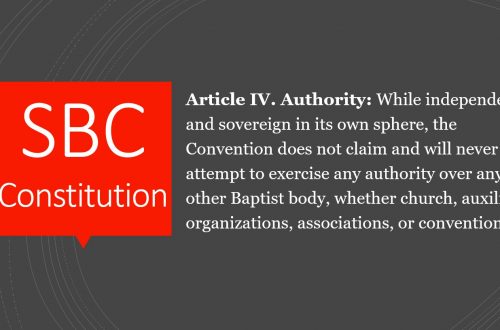Yesterday, the Vatican released a statement saying that the Roman Catholic Church should not engage in an “institutional mission work directed towards Jews.” Why? The statement is long—too lengthy to summarize here. But the gist of the argument goes like this. God has spoken to the Jews in the Old Testament. The Old Testament bears prophetic witness to Jesus Christ, the Savior of the World. We know from Paul that “the gifts and calling of God are irrevocable.” Therefore, whether they realize it or not, the Jews are saved by Christ.
In one sense, there is nothing new here. Vatican II opened the door to the idea that “implicit faith in Christ” might be saving (source), and this latest statement is merely cashing-in on that possibility. That is nowhere clearer than in Section 17, which among other things says,
While affirming salvation through an explicit or even implicit faith in Christ, the Church does not question the continued love of God for the chosen people of Israel.
Bottom line: Jews don’t have to believe in Jesus Christ explicitly in order to be saved by Christ. They can be saved by Christ simply by believing the promises of God in the Torah.
36. From the Christian confession that there can be only one path to salvation, however, it does not in any way follow that the Jews are excluded from God’s salvation because they do not believe in Jesus Christ as the Messiah of Israel and the Son of God. Such a claim would find no support in the soteriological understanding of Saint Paul, who in the Letter to the Romans not only gives expression to his conviction that there can be no breach in the history of salvation, but that salvation comes from the Jews (cf. also Jn 4:22)… That the Jews are participants in God’s salvation is theologically unquestionable, but how that can be possible without confessing Christ explicitly, is and remains an unfathomable divine mystery…
In short, God can save people through Jesus without those people believing in Jesus, and that truth would certainly apply to the Jews, for whom “the gifts and calling of God are irrevocable” (quoting Romans 11:29). The upshot of this view of Jewish salvation is that it is not necessary for the church to evangelize the Jewish people.
The Church is therefore obliged to view evangelisation to Jews, who believe in the one God, in a different manner from that to people of other religions and world views. In concrete terms this means that the Catholic Church neither conducts nor supports any specific institutional mission work directed towards Jews. While there is a principled rejection of an institutional Jewish mission, Christians are nonetheless called to bear witness to their faith in Jesus Christ also to Jews, although they should do so in a humble and sensitive manner, acknowledging that Jews are bearers of God’s Word, and particularly in view of the great tragedy of the Shoah.
I will not even attempt a comprehensive response to this statement in this short space. Nor will I rehash the serious soteriological differences that still divide Protestants and Catholics. Those differences are real and are as yet unresolved—some of them having to do with fundamental truths of the Bible. Having said that, I will point out two critical errors in this statement that cut at the heart of the Christian faith:
(1) The statement is an exegetical disaster. It really distorts Paul’s message in Romans 9-11. It is true that the Jews have a special role as the people of God in salvation history. It is also true that the “gifts and calling of God are irrevocable” (Rom. 11:29). But it is not true to suggest that anyone—Jew or Gentile—will be saved apart from explicit faith in Christ. To wit, this statement ignores what Paul says in Romans 11 about unbelief. In particular, it ignores the fact that Paul says both Jews and Gentiles are “cut off” from God’s promises by “unbelief” (Rom. 11:20). Anyone who fails to believe in Jesus as the Christ is therefore “cut off” from the saving work of God through Christ. In fact, all of Romans 9-11 is Paul’s attempt to explain how the Old Testament promises of God have not failed even though the Jews of his day by and large did not embrace Jesus as their Messiah. Paul wanted the Jews to be saved, but he knew that they wouldn’t be saved apart from explicit faith in Christ: “Whoever will call upon the name of the Lord will be saved. How then shall they call upon Him in whom they have not believed?” (Rom. 10:13-14).
(2) The statement also ignores the fact that Paul tried to evangelize the Jews in every place that he went to (e.g., Acts 13:14; 14:1; 17:1-2, 10; 18:19). It also ignores the fact that Paul expresses his evangelistic intent toward the Jews even in the book of Romans itself: “My heart’s desire and prayer to God for them is for their salvation… For Christ is the end of the law for righteousness to everyone who believes” (Rom. 10:1, 4).
In short, this statement from the Vatican reflects an erroneous view of God’s saving purposes through Jesus. As a result, it presents a distorted picture of the evangelistic mission that God has given to the church. God is on a mission in His world to see both Jews and Gentiles come to faith in Christ—the only way of salvation (John 14:6). God calls his people to join him on that mission and to make disciples of every nation (Matt. 28:19-20). If this is true, then the Vatican’s statement is calling people away from God’s saving purposes in the world. There is nothing more serious than that.




9 Comments
Ian Shaw
Denny,
It sounds like the RC church has now proclaimed that since Israel was God’s chosen people (at one point in time), they view that as an everlasting covenant (which defies the need for a Savior to come). Which I find to be strange as the NT pretty much points out that anyone who believes is “the chosen people of God”.
Reminds me of how some evangelical groups view America as the new Israel and how they believe we are God’s chosen nation.
This statement, along with Pope Francis’s claimed a few months/year back regarding homosexuality “if someone has good will……”, is very much eroding the saving work of Christ.
This is the trampoline argument run amok.
Christiane Smith
there are many kinds of ‘ministry’, but the most striking of all is ‘witness’ so strong it defies even the need the witness feels for physical self-preservation
. . . and for those in my Church (and in the whole Church) who sheltered Jews from extermination at the time of the Shoah, there can be no greater witness to the Jewish people of the compassion of those who follow Lord Christ . . .
you see, if these protectors who sheltered and hid the Jews were discovered, it meant that they and all their family were also sent away to the death camps . . . . . . I have no words to speak against the Christian witness of those who put their own lives on the line to give Jews sanctuary
. . . . in spite of all risks to themselves, their loving offering of sanctuary stands as witness to Christ that is beyond human words to describe . . .
https://www.youtube.com/watch?v=CatGtrfqjJE
The narrator speaks about one of the women survivors who, as a child, was carried to the train station following her liberation by a young Polish priest who would become Pope John Paul II and now she is meeting him again at this reunion at the Shoah place of memorial called Yad Vashem
Christiane Smith
continued . . .
there is a kind of love that wants what is best for the ‘other’ for the sake of the ‘other’
it does not ask for anything in return
it does sometimes cost the one who loves greatly, but the cost is not counted
I sometimes think of the family of Corrie ten Boom and how, during the time of the Shoah, they took Jews into their home for sanctuary and hid them, and how they suffered terribly because of their great Christian love for those people . . . I wonder if Christians today still have the faith to offer so great a witness to Christ, and then I read about the Southern Baptist Church that is offering sanctuary to a Syrian refugee family,
and I knew that it was done out of the same kind of love . . . and that it shines as a witness of a Christian people to their great Lord . . . God Bless Bryant Wright and his congregation . . . the Lord, in His great mercy, has looked on them and they have borne witness to that mercy
http://www.ajc.com/news/news/state-regional-govt-politics/marietta-baptist-church-helping-syrian-refugees-re/npdtM/
ian Shaw
Christine,
I understand your sentiments, but that does not really address the question that Denny brought up. In light of the statement from the Vatican, doesn’t that completely clash with Christ’s direct message to us all in Mathew 28:19-20? The Great Commission was not nation specific nor ethnicity specific. All nations means all. Doesn’t it?
Pingback:
Tony Scialdone
I sure wish the disciples had understood this part…would have saved a lot of time in the first century, not having to explain the gospel to the Jews.
Christiane Smith
Hi IAN and TONY,
some in Christianity who are Catholic see the Jewish people as ‘our elder brothers’ and, in doing so, we regard them with a profound respect that does not preclude them from God’s mercy as we see it unfolding within the full scope of the Paschal mystery . . .
this is expressed in that new document in these words:
“Judaism, it points out, “is not to be considered simply as another religion; the Jews are instead our elder brothers”.
It says that, in the presence of Jews, Catholics should express their faith “in a humble and sensitive manner, acknowledging that Jews are bearers of God’s Word, and particularly in view of the great tragedy of the Shoah [Holocaust]”.
Turning to the vexed question of salvation, the document says: “that the Jews are participants in God’s salvation is theologically unquestionable, but how that can be possible without confessing Christ explicitly, is and remains an unfathomable divine mystery”. (quote is from a recent BBC article)
My own feeling is that those in my Church do not see the Jewish faith as outside of salvation in the same way that other Christians may view them to be, and while we do, as Catholics, express our faith when we pray with Jews, we do so with respect for these ‘bearers of God’s Word’ who have endured and survived the Shoah . . . there is a sacred bond that cannot be broken and we recognize that bond as part of the Paschal mystery . . .
I know this is not what evangelical people are used to hearing but we Catholics have a long, rather sad history with the Jewish people, and it is in humility that we have come to stand beside our Jewish brothers in prayer, we as Christ-followers, they as Jews, with all respect and honor.
We expect to see our Jewish elder brothers included in the saving mercy of God and we know them to be connected to us in a special way through the patriarchs, the prophets, and the sages of the Word:
” the New Testament lies hidden in the Old and the Old Testament is unveiled in the New” (St. Augustine)
Patrick Joseph
To build on Christiane’s point, I would like to share my understanding of the Catholic teaching that appears to be at least a portion of the controversy here.
As Denny pointed out, Catholics do not believe an explicit faith in Christ is always required for salvation. Many souls never (at least while on earth) attain the intellectual capacity for an explicit faith in Christ. An easy example of this is babies that are never born, but there are many others. We have Christian hope that Christ saves these souls in spite of their lack of an explicit faith in Him. We believe others also have obstacles that have kept them from effectively hearing or understanding the Gospel. We hold out hope for their salvation, as well.
But one is mistaken if he draws from this teaching that it does not matter whether one has an explicit faith in Christ. On the contrary, we believe it is our extremely important duty to both understand and spread the Gospel. We also believe one can choose Hell by knowingly rejecting our Lord.
Even for Catholics who believe all this, there is room to argue that the pastoral decision not to have an institutional mission to the Jews is an incorrect one. Among the reasons I happen to agree with this decision, however, is that I believe an institutional mission to the Jews would likely drive more away than it would attract. (To understate the point, we have not always been loving in our outreach to Jews). It would potentially also harm the Vatican’s relations with the Jewish people. Evangelizing individually is a different matter. As the documented stated, we should “bear witness to [our] faith in Jesus Christ also to the Jews.”
Part of the witness of some to a Jew might be advising him that he is destined for Hell if he does not come to a faith in Jesus. As Catholics, we don’t believe we know this, so our witness would be different.
Ian Shaw
To add to Patrick and Christiane’s points,
I can understand why there is much respect, regarding the Jewish people who are entrusted by God with the law. As an evangelical, I know there are differences with RC teaching regarding things of this nature. But I would also reference Paul, who said that evidence of God’s existence are made visible in creation and none are without excuse. But specifically towards the Jewish community at the time, Paul said that there always was “an Israel within Israel”. Meaning that not all of them were true bearer’s of God’s word (as Christiane put it).
But with Christ’s sacrifice and resurrection, there is no longer 1 chosen nation or people, but rather all of us who put our faith in Him.